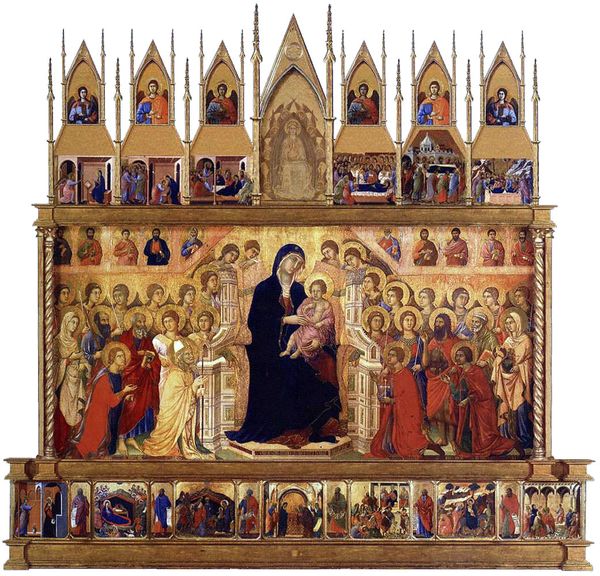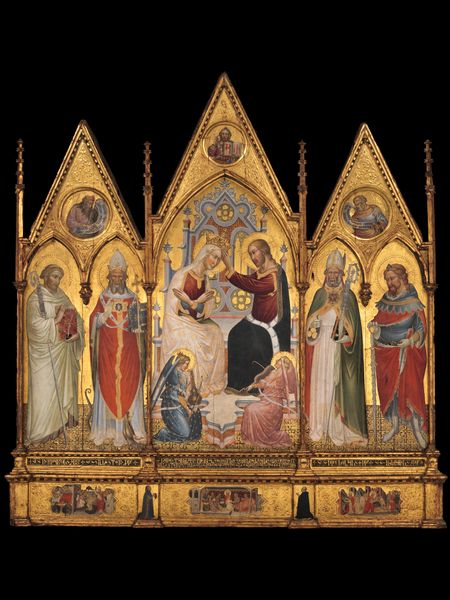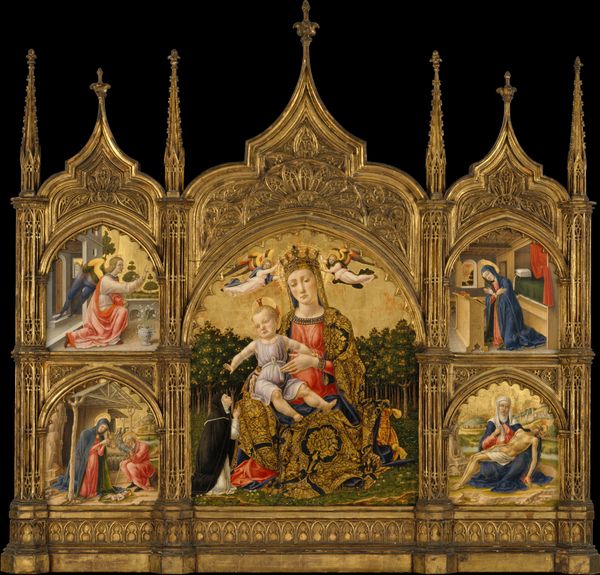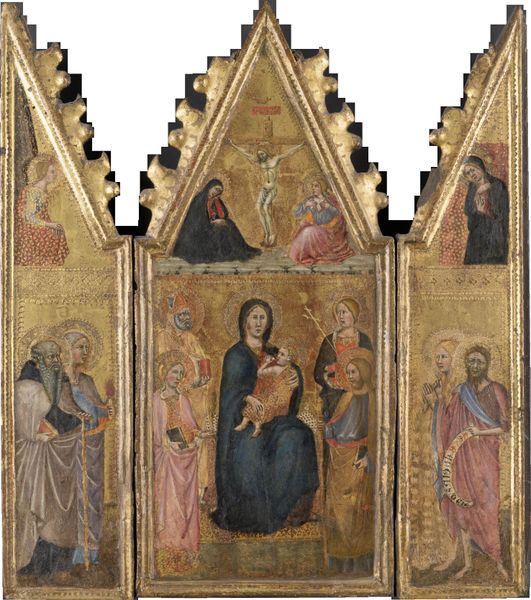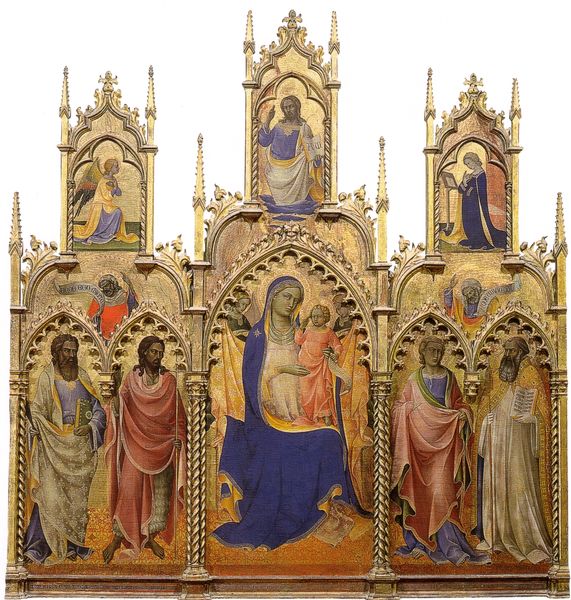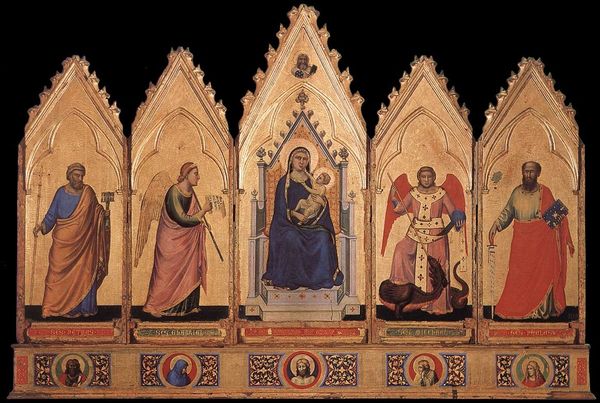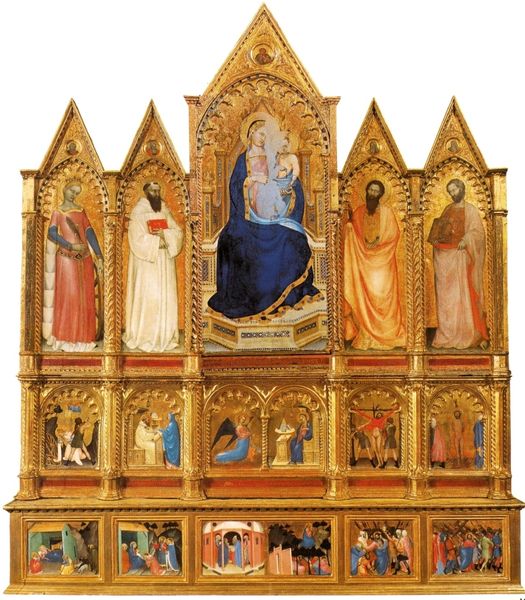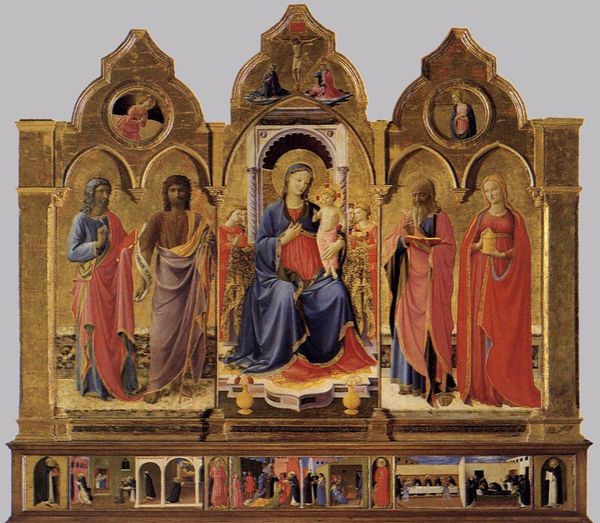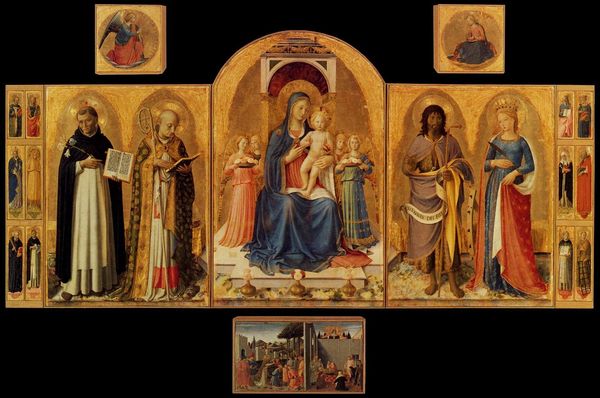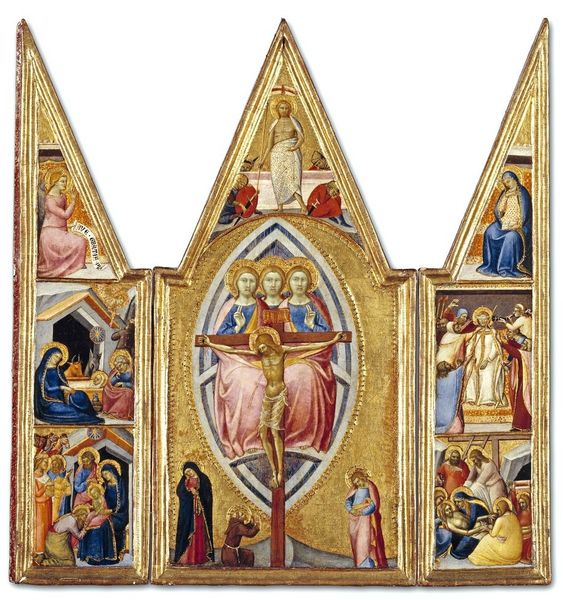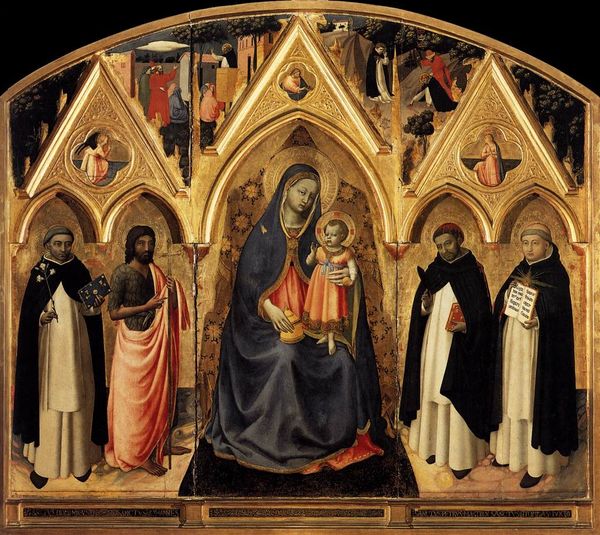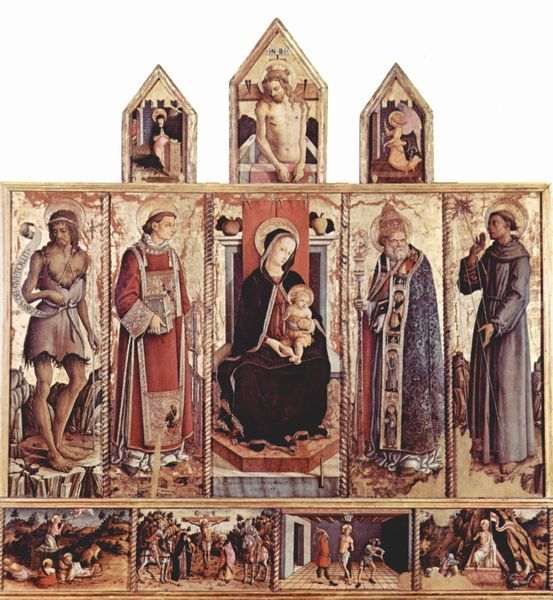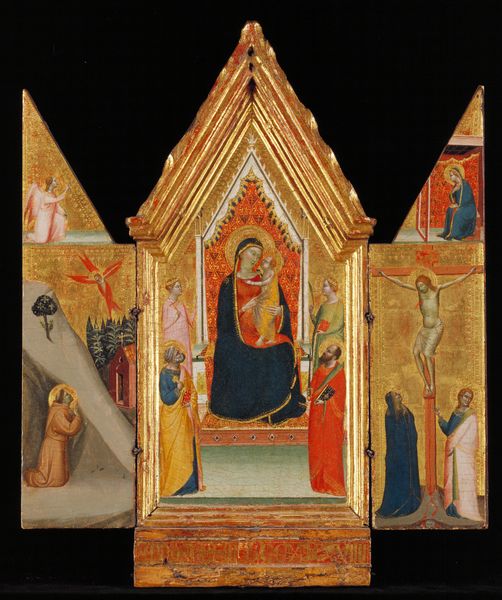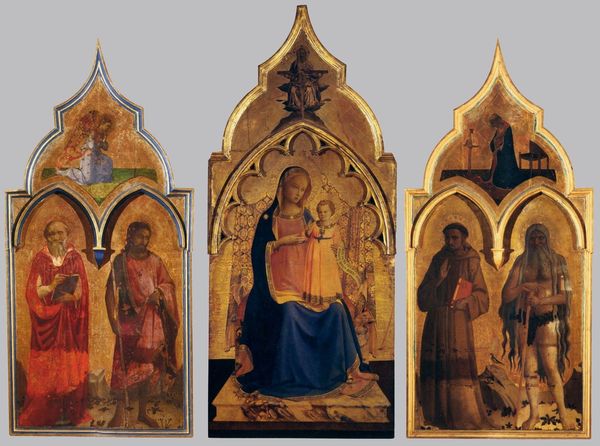
Perugia Altarpiece 1448
0:00
0:00
fraangelico
National Gallery of Umbria (Palazzo dei Priori), Perugia, Italy
panel, tempera, painting, fresco, architecture
#
panel
#
tempera
#
painting
#
fresco
#
architecture
#
christianity
#
italian-renaissance
#
virgin-mary
#
architecture
#
christ
Copyright: Public domain
Fra Angelico painted this altarpiece in Perugia with tempera on panel, a common medium for the period. The panel painting gives us some insight into workshop practice in Renaissance Italy. Note the extensive gilding, achieved with thin sheets of hammered gold leaf. This wasn't just a decorative flourish; the gold would have caught the light, creating a shimmering effect intended to evoke the divine. Look closely at the figures, and you'll see how the paint is applied in layers, building up volume and detail. This technique, known as tempera, required patience and skill, as the paint dried quickly and was difficult to blend. The altarpiece form itself speaks to a whole system of production. While Fra Angelico may have designed the overall composition, he would have relied on assistants to prepare the panels, apply the gold leaf, and grind the pigments. Craftsmanship in those days wasn't always about individual expression. By attending to how these elements of material and process shape what we see, we can grasp the significance of the altarpiece as both a work of art, and a product of its time.
Comments
No comments
Be the first to comment and join the conversation on the ultimate creative platform.
